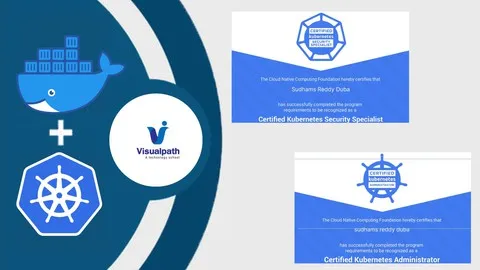Description
Containerization technology provides flexibility to develop the application much faster and more secure manner as part of DevOps and DevSecOps culture adopted by many of the Organization in today IT industry.
We as VisualPath Team has come up with a course that simplifies the understanding of Containerization technology.
- Containerization creates an OS level virtualization to save lot of resources consumption and run more application on a platform.
- Docker tools helps initially to understand the core feature of Containerizing the application with Image build, Networking, Storage, etc.,
- Docker provides tools like Docker Engine, Docker Desktop, Docker Compose, Docker Machine, and Docker Swarm.
- Docker Engine helps to spin containers and run any sort of application (Nginx, MySQL, Hadoop, ML, etc.,) with predefined and Custom Images.
- Kubernetes Orchestration tool helps to containers specific to application as POD workload to have common network and shared storage.
- After Kubernetes developed with wide number of features, usage of Docker Swarm was suppressed by many of the Organizations to run application on a Cluster environment.
- In this course of Kubernetes, we will be understanding the architecture, cluster setup and configuration, workloads, objects, networking, monitoring, storage, and many more…
- We will be focusing on Docker Engine, Docker Compose (Orchestration tool to manage resources on Docker Engine), Kubernetes Cluster (On-premises), Monitoring, and Projects from each platform of different sort of applications like WordPress, Jenkins, Node application.
- Docker Engine CE (Community Edition) and Kubernetes Orchestration are open-source where we can install on our local machines and understand the features provided by those, where we will be focusing in the course all together.
- The key principles of learning any technology is fundamentals and troubleshooting (through Monitoring services) to sustain for longer period in IT industry with new technologies.
- After completion of the Course you can plan for Kubernetes certifications like CKA (Certified Kubernetes Administrator) and CKAD (Certified Kubernetes Application Developer)

